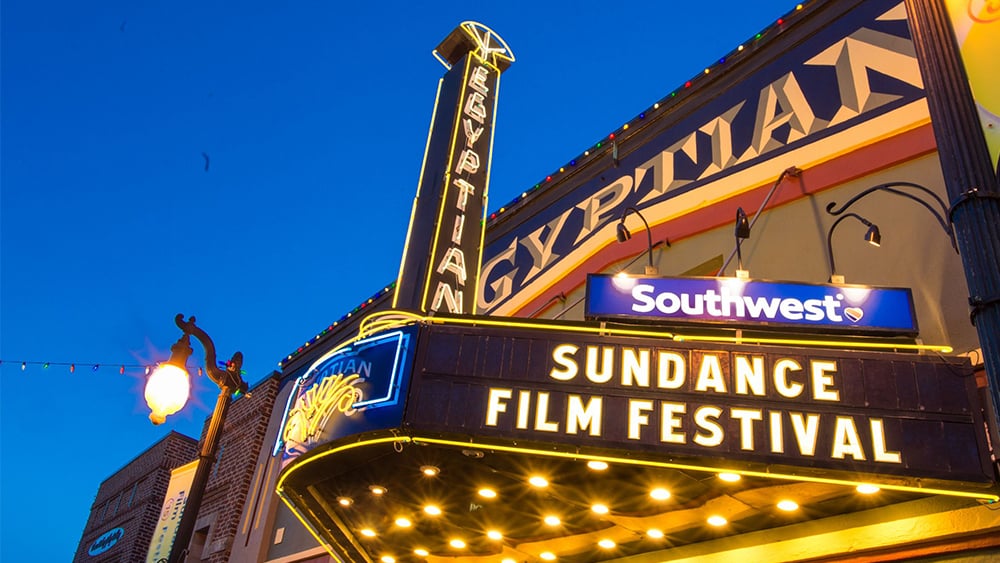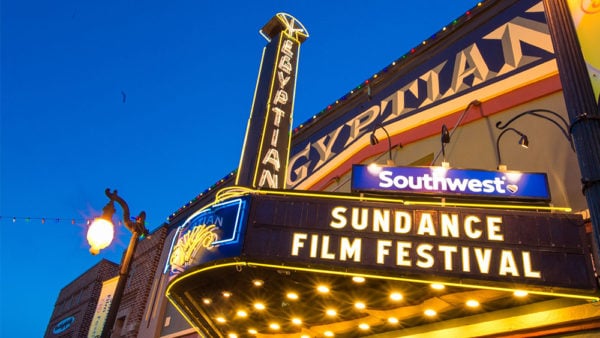
This is one article in a series of Sundance coverage – follow The Daily’s reviews of select Sundance films every day this week, extending into next week.
At the 2018 Sundance Film Festival in Park City, Utah, it’s often hard to watch a bad film. The showcase, which I attended from January 19 through January 22, features some of the most impressive submissions by American and international independent filmmakers. Despite a few duds – like the bizarre, cult comedy of “An Evening With Beverly Luff Linn” and the snoozefest that was “I Think We’re Alone Now” – I saw some incredibly moving documentaries, expertly crafted dramas and creatively scripted comedies. Here are some of my favorites.
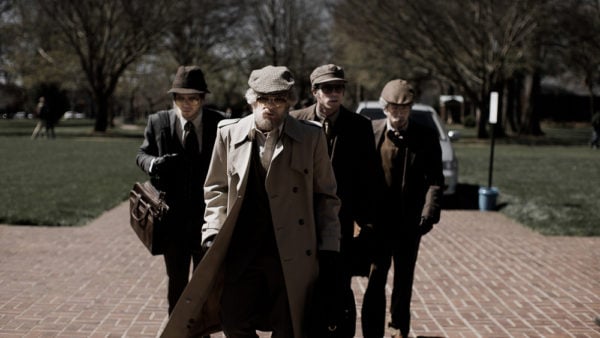
“American Animals” – directed by Bart Layton; starring Evan Peters, Barry Keoghan, Blake Jenner and Jared Abrahamson
What do you get when you combine two extremely rare and expensive books, guarded only by a feeble librarian, with four college kids looking for a thrill? The grounds for an incredible heist – at least if you had asked Spencer (Barry Keoghan), Warren (Evan Peters), Chas (Blake Jenner) and Eric (Jared Abrahamson) in 2003.
“American Animals” intrigues audiences right out of the gate. The title sequence reads, “This is not based on a true story,” before the words “not based on” dissolve from the slide, leaving only, “This is a true story.” In fact, “American Animals” follows the absolutely true tale of Spencer and Warren who attend Transylvania University: On a class field trip, Spencer observes the library’s prized possessions, John James Audubon’s “Bird of America” and one of Darwin’s original volumes. The boys dream up the idea of stealing and selling the books, but over time, this far-fetched “what-if” becomes a reality. After enlisting fellow students Chas and Eric to help, the boys attempt the heist and, sure enough, everything that could go wrong does.
Beyond the excitement and stress-inducing plot, Layton’s unique format of storytelling adds another layer to the film. Within the narrative, Layton splices interviews from the real-life thieves, 14 years after scheming and serving jail time. The interaction between the boys’ retelling of the crime – after having had time to reflect (and forget some of the details) – adds an entirely new dimension to the already action-packed plot. The unreliability of memory also casts a shadow of doubt onto the story, leaving the viewer with more questions than answers.

“The Sentence” – directed by Rudy Valdez (Audience Award, U.S. Documentary Competition)
Rarely can a film make viewers cry or laugh for their full length, but “The Sentence” does just this. Director Rudy Valdez documents the aftermath of his sister Cindy’s 15-year jail sentence for conspiracy in relation to her ex-boyfriend’s drug dealing crimes, a phenomenon known as “the girlfriend problem.” Rudy Valdez paints an intimate and vulnerable story with themes of activism against unjust systems and unrelenting love within a family in crisis.
Although the drug-dealing charge was originally abandoned, authorities came knocking on Cindy’s door six years after the incident. By this point, she had started a new life with a respectable husband and had three adorable little daughters. Her harsh sentence is attributed to the mandatory minimum laws that force judges to give a certain number of years despite individual circumstances like Cindy’s. Before she knew it, Cindy was swept away to prison where she would miss every milestone, from her youngest’s first steps to her oldest’s dance recitals.
What began as a way for Valdez to catalog these moments for his sister upon her release turned into much more. With hundreds of hours of footage, Valdez realized the importance of sharing Cindy’s story with the world in this incredibly moving documentary. The motivation to fight Cindy’s incarceration leads Valdez and the family to embark on a long and complicated appeals process and eventually receive clemency for Cindy in the final months of the Obama administration. Between candid interviews with Cindy’s parents, phone calls between Cindy and her daughters who miss her greatly and family visits to Cindy that are all too short and infrequent, Valdez crafts a piece that makes viewers feel hopeless, frustrated and overwhelmed – but arguably in a good way.
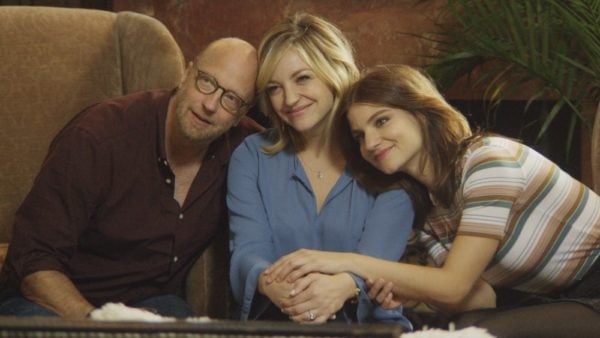
“Clara’s Ghost” – directed by Bridey Elliott; starring Chris Elliott, Paula Elliott, Abby Elliott and Bridey Elliott
One of the more exceptional features of seeing a film at Sundance is the ability to see and interact with the cast and crew in a Q&A session after the screening. Sometimes I was shocked at the contrast between actors’ characters on screen and their real-life appearance and personality. Seeing the cast of “Clara’s Ghost” shocked me in a different way.
As a daughter and sister of well-known actors, director Bridey Elliott presents a hilarious dark comedy seemingly based largely off her own life and family dynamic. Bridey, who stars in the film herself, casts her actual parents to play Ted Reynolds (Chris Elliott) and Clara (Paula Elliott), a famous actor and a homemaker, respectively. The couple’s daughters and former child stars, Julie (Abby Elliott) and Riley (Bridey Elliott), arrive back at home for the celebration of the family dog’s birthday.
The family dynamic is what Bridey captures so expertly – and she should, given that these are essentially exaggerated versions of the people she knows so well. Ted is peeved that he’s becoming a has-been actor, Julie is self-obsessed and vapid but succeeding in the acting business ,and Riley’s lack of success is forcing her to a lifetime of “Where Are They Now?” tours to pay the rent. Clara is a stark contrast to the attention-seeking, wildly crude, loquacious threesome of celebrities.
Like in “Clara’s Ghost,” the interaction between the actors in the Q&A completely demonstrates Bridey’s keen eye for characters. The foursome mock each other to a level of discomfort, each letting their character’s idiosyncrasies shine through. Bridey’s honest, hilarious and haunting film depicts a dysfunctional family with uncanny precision.
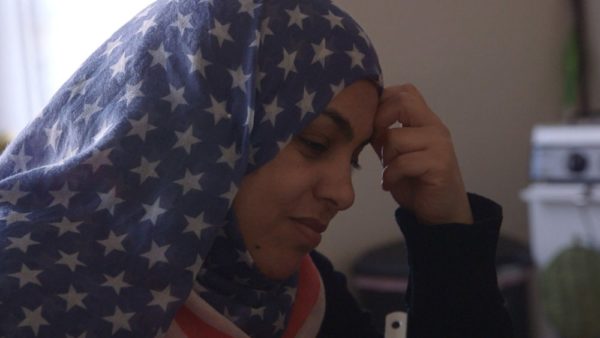
“This Is Home” – directed by Alexandra Shiva (Audience Award, World Cinema Documentary Competition)
In the wake of threats to our country’s treatment of immigrants, even as recently as two weeks ago with Trump’s most recent comments regarding those from “shithole countries,” “This Is Home” makes an already inspiring and and informative film all the more relevant. Alexandra Shiva effectively conveys the inherent virtue of refugees in need of assistance in a nation diminishing in empathy.
The documentary follows the lives of four Syrian refugee families from the time they arrive in Baltimore to the time that they’re supposed to be fully self-sufficient – eight months later. In this period, the International Rescue Committee will help the families find jobs, learn English and provide translators, among other duties. But after that, they’re on their own. To make matters worse, Trump’s travel ban announcement exacerbates the already tense lives of the refugees as they contemplate their safety as well as the safety of their loved ones in Syria.
The eight-month period sets the structure of the film, with viewers getting more and more nervous as the clock ticks away their access to governmental assistance. Though the cinematic work is pretty simple – no bells or whistles in that department – the raw storytelling of the interesting subject matter makes the 91-minute production fly by.
Contact Sabrina Medler at smedler ‘at’ stanford.edu.
